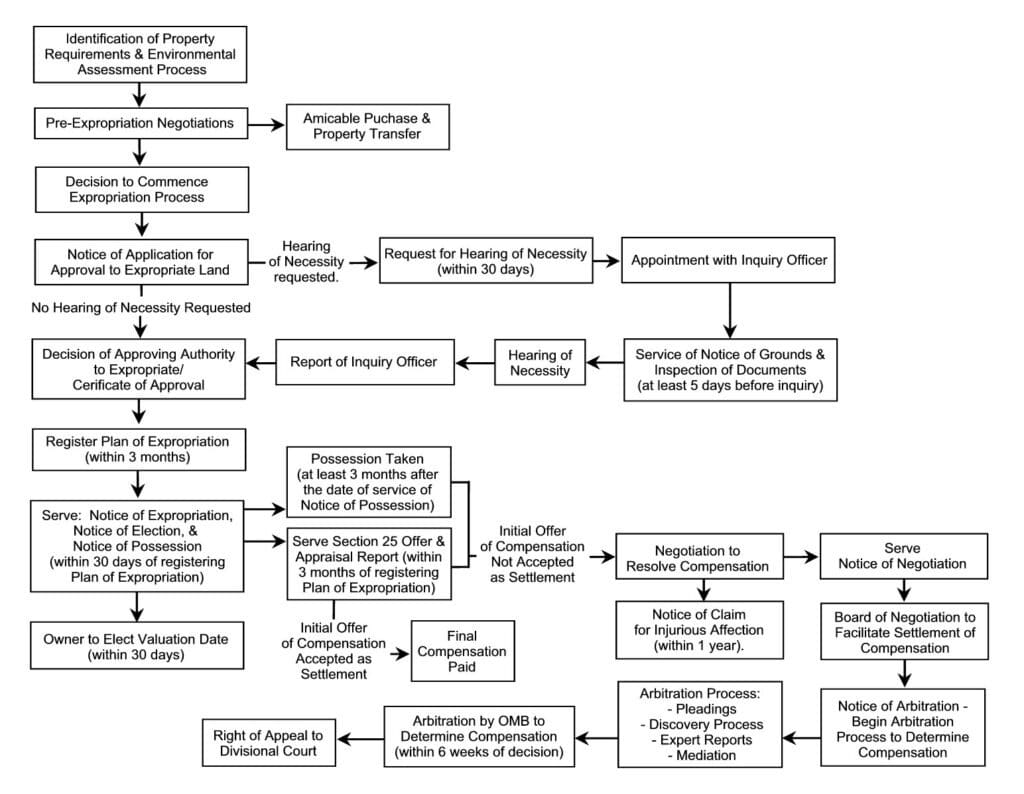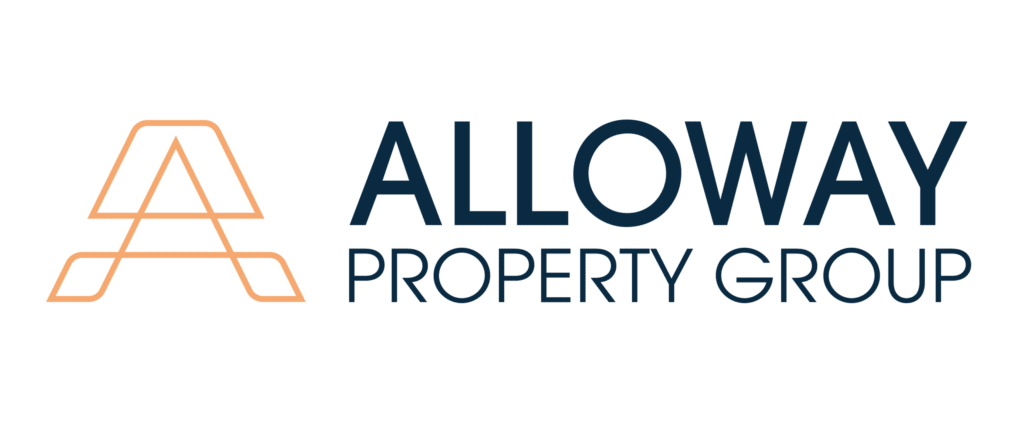Before buying a property, it’s crucial to consider every angle, especially the location. You’ve likely heard the phrase: “Location, Location, Location,” which reminds us that while homes can be renovated or redesigned, the location remains fixed. One factor that often comes with desirable proximity to public services, like transit or healthcare, is the possibility of expropriation. Homebuyers and property owners should be aware of this process and understand their rights if they ever receive a notice.
In this article, we’ll explore the expropriation process, how it works, the compensation available, and what homeowners can do if they are affected. Whether you are concerned about a full or partial expropriation, it’s important to be well-informed and prepared.
On This Page
What is Expropriation?
Expropriation is the process by which a government authority acquires private property for public use. It is an exercise of the government’s power of Eminent Domain, which is the legal right to seize private land for projects that serve the public interest. Expropriation can either be partial—where only a portion of your property is taken, or full—where the entire property is acquired by the authority.
In Canada, this process is governed by the Expropriations Act, Ontario, and the Expropriation Act, Canada, which provide frameworks for how landowners are notified, compensated, and protected.
Expropriation is often seen in large municipal infrastructure projects, such as public transportation expansions, road widening, or other critical infrastructure developments. For example, Toronto’s Eglinton Crosstown LRT project required several expropriations to ensure sufficient land for the project’s construction.

The Expropriation Process: How does It Work?
Expropriation in Ontario follows a structured, step-by-step process, starting with the government’s identification of the property and ending with compensation and resolution of any disputes. Below is a breakdown of each stage of the process, including your rights as a property owner:
1. Notice of Application for Approval to Expropriate
The expropriation process begins with the government identifying a need for the property. Before any land can be acquired, the expropriating authority must issue a Notice of Application for Approval to Expropriate to the landowner. This formal notice informs the property owner of the government’s intention to expropriate, and it is posted in local newspapers for a period of three weeks.
During this period, the property owner has the right to request a Hearing of Necessity. This hearing allows the landowner to challenge whether the expropriation is truly necessary. The hearing involves an independent review by an Inquiry Officer, who provides a report to the expropriating body. However, even if the Inquiry Officer finds that the expropriation is unnecessary or unfair, the government can still proceed with the approval to expropriate.
2. Decision and Registration of Expropriation on Title
Once the necessity of the expropriation has been approved, the expropriating authority must register a Plan of Expropriation within three months. This plan is then registered on the title of the property, meaning it is officially recorded that the land (or a portion of it) is set to be expropriated.
After the registration of the expropriation, the owner is served with several notices, including:
- Notice of Expropriation – Confirms the expropriation of the land.
- Notice of Election – Allows the owner to elect the valuation date for compensation.
- Notice of Possession – Outlines when the authority will take possession of the land. Possession typically occurs no sooner than three months after the service of the notice.
3. Appraisal and Initial Compensation Offer
The next step involves determining the fair compensation for the property. The expropriating authority is required to conduct an appraisal of the lands to assess their fair market value. Within three months of registering the plan of expropriation, the authority must present the owner with a Section 25 Offer of compensation. This offer is based on the appraisal and is intended to reflect the fair value of the land being expropriated.
Property owners have two options upon receiving the compensation offer:
- Accept the offer in full settlement: The owner agrees that the amount offered is fair and final.
- Accept the offer without prejudice: The owner can accept the amount offered but reserves the right to negotiate for more compensation through further negotiations or an appeal.
4. Negotiation and Arbitration Process
If the property owner does not agree with the compensation offered, they can choose to negotiate with the expropriating authority. This negotiation can occur informally or through a formal Board of Negotiation process.
In cases where negotiation fails, the matter can be escalated to an arbitration process. This involves filing a Notice of Arbitration with the Ontario Municipal Board (OMB) or another relevant body. Arbitration involves:
- Filing pleadings and statements of claim
- Engaging in a discovery process
- Preparing expert reports
- Mediation sessions
The goal of arbitration is to determine fair compensation if the parties cannot reach an agreement independently.
Partial vs. Full Expropriation
Expropriation may involve the acquisition of the entire property (full expropriation) or only a portion of the land (partial expropriation). In cases of partial expropriation, the remaining land may experience a reduction in value, known as Injurious Affection. Homeowners have the right to claim compensation for the loss in value to their remaining land, as well as for any disturbances caused by the expropriation.
In partial expropriation, it’s common for the expropriating authority to take sections of a property for infrastructure expansion—such as part of a yard for a road widening—while the owner continues to live on the remaining land. This makes it especially important for property owners to fully understand their rights regarding compensation and Injurious Affection claims.
Timeline of Expropriation
The timeline for expropriation varies based on the complexity of the project and the cooperation of the property owner. In ideal situations, where the owner cooperates and negotiations are straightforward, the process can be completed in as little as four months. However, when compensation disputes arise, or if the case proceeds to arbitration, the timeline can extend well beyond 12 months.
Compensation: What can you Expect?
Expropriation compensation can cover various factors, including:
- Market Value: Compensation for the fair market value of the land as it is, without considering potential future public improvements.
- Disturbance Damages: Compensation for the inconvenience caused by relocation or disruption to the owner’s daily life.
- Relocation Expenses: Includes the costs of moving to a new residence, typically an additional 5% of the market value of the property.
- Injurious Affection: For partial expropriation, this is the reduction in market value of the remaining property after part of it has been taken.
- Special Damages: Compensation for specific needs, such as making a new residence accessible if the owner has a disability.
In addition, the expropriating authority is generally required to cover reasonable costs, such as legal fees, appraisal costs, and other disbursements related to the expropriation process.

Conclusion: Know Your Rights & Next Steps
Expropriation can be a stressful and overwhelming experience for property owners. The loss of property—whether partial or full—can disrupt not only your financial standing but also your way of life. That’s why it’s important to understand the expropriation process, your rights to compensation, and the potential for negotiation or appeal.
At Alloway Property Group, our expert legal team can assist you at all stages of the expropriation process, including navigating negotiations and pursuing fair compensation. Whether you are facing partial or full expropriation, contact us for support and guidance.
